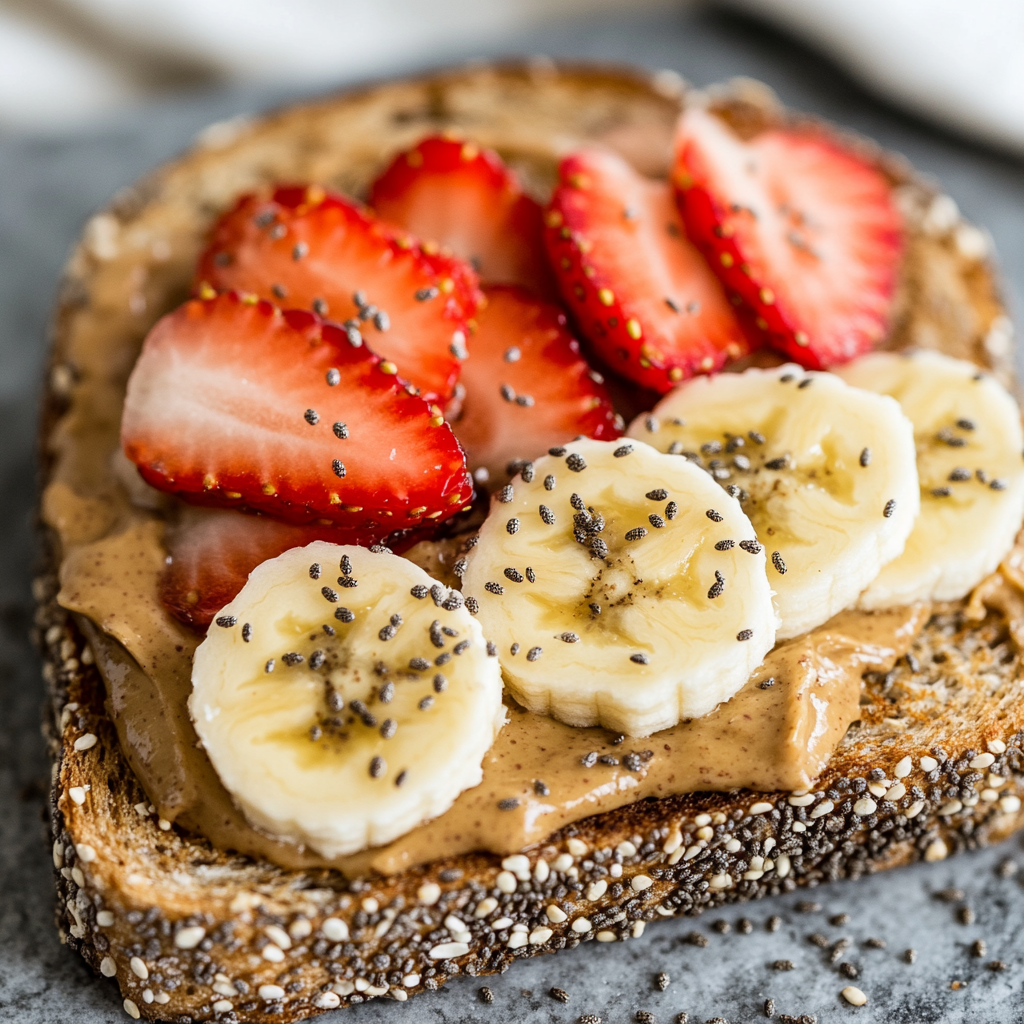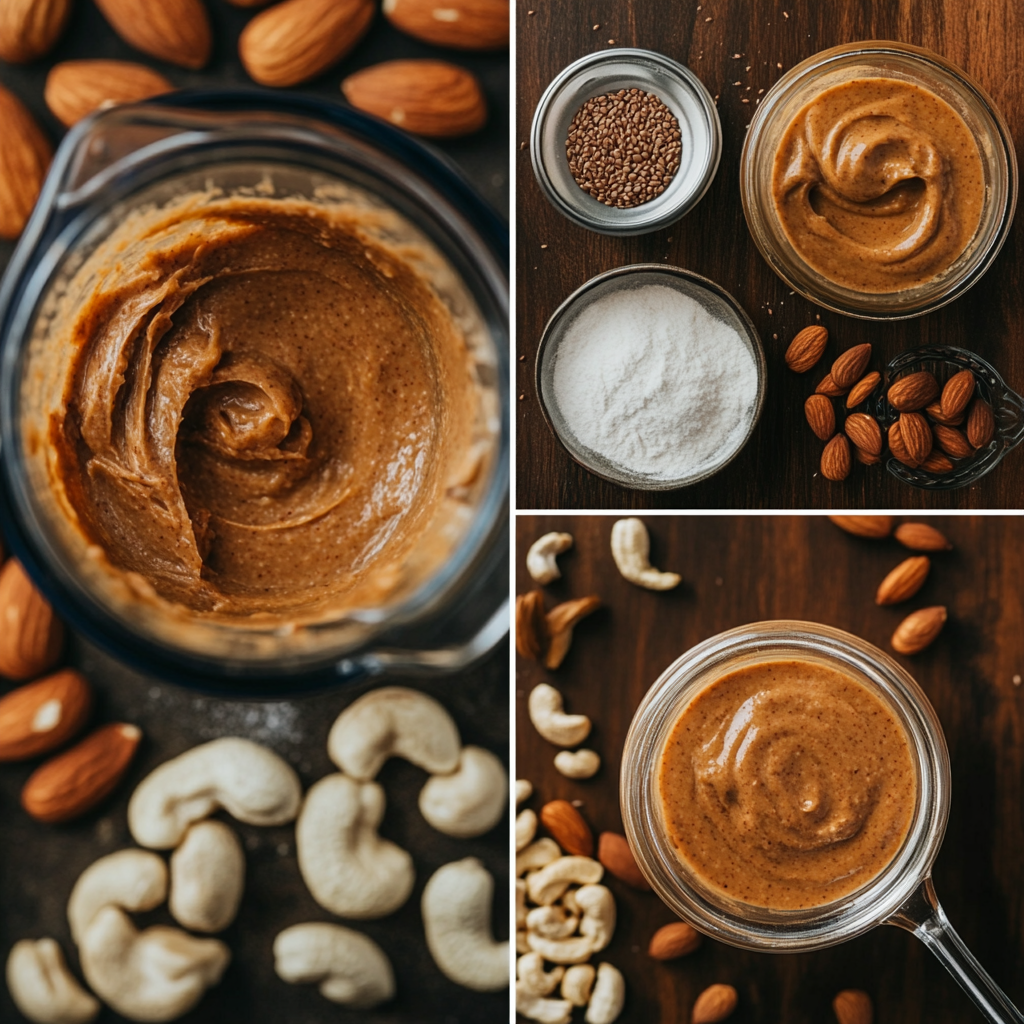Nut butters are not only delicious but also packed with nutrients that make them a healthy addition to your diet. From the well-known peanut butter to more exotic options like macadamia nut butter, there is a wide variety of choices available today. Whether you’re looking for a snack, a meal addition, or a way to boost your nutrient intake, nut butter can be an excellent choice.
In this article, we’ll explore the various types of nut butters, their health benefits, and creative ways to incorporate them into your meals. We’ll also discuss the pros and cons of consuming nut butters and answer some of the most frequently asked questions.
What Is Nut Butter?
Nut butter refers to spreads made by grinding nuts until they form a paste-like consistency. Popular nut butters include peanut, almond, cashew, and hazelnut butter, but there are many other varieties. Nut butters are typically high in fats and protein, making them a satiating and nutrient-rich food choice.
Many people turn to nut butters for their high nutritional value. These spreads provide a convenient source of healthy fats, protein, fiber, vitamins, and minerals like vitamin E, magnesium, and selenium. However, it’s essential to choose varieties without added sugars and oils to maximize health benefits.
Types of Nut Butters You Need to Try

While peanut butter may dominate the market, there’s a world of other nut butters worth exploring. Let’s dive into some of the most popular and nutritious types:
1. Almond Butter
- Nutritional Profile: Almond butter is rich in vitamin E, monounsaturated fats, and protein. One tablespoon of almond butter provides about 98 calories, 3 grams of carbohydrates, 1.7 grams of fiber, and 3.4 grams of protein.
- Health Benefits: Regular consumption of almond butter may help improve heart health, regulate blood sugar levels, and support weight management. Its high vitamin E content makes it a powerful antioxidant that protects cells from damage.
- Best Uses: Add almond butter to smoothies, use it as a spread, or mix it into oatmeal.
2. Peanut Butter (Smooth and Crunchy)
- Nutritional Profile: Peanut butter is high in protein and healthy fats. One tablespoon of smooth peanut butter contains around 96 calories, 3.6 grams of carbohydrates, and 3.6 grams of protein.
- Smooth vs Crunchy: Smooth peanut butter has a creamy texture, while crunchy peanut butter retains bits of peanuts for a chunkier consistency. Both types offer similar nutritional profiles, but crunchy peanut butter has slightly more fiber and protein.
- Health Benefits: Peanut butter is affordable, nutrient-dense, and an excellent source of energy. Its high protein content supports muscle health, while its monounsaturated fats promote heart health.
- Best Uses: Spread it on toast, mix it into curries, or add it to sandwiches for a satisfying meal or snack.
Learn more about the benefits of powdered peanut butter in this guide.
3. Cashew Butter
- Nutritional Profile: One tablespoon of cashew butter provides 94 calories, 4.4 grams of carbohydrates, and 2.8 grams of protein. It is slightly sweet and lower in fat compared to other nut butters.
- Health Benefits: Cashew butter is rich in copper, which supports immune function, and magnesium, which benefits bone health. It’s also a good source of antioxidants, helping to combat inflammation.
- Best Uses: Ideal for baking, smoothies, and savory dishes like stir-fries or sauces.
4. Hazelnut Butter
- Nutritional Profile: One tablespoon of hazelnut butter contains 94 calories, 9.1 grams of fat, and 2.2 grams of protein. It’s often combined with chocolate for a decadent flavor.
- Health Benefits: Hazelnut butter is high in healthy fats and supports heart health. It also provides vitamin E and magnesium, essential for skin health and energy production.
- Best Uses: Spread it on toast, mix it into desserts, or blend it into a smoothie.
For more information on the benefits of hazelnut butter, check out this resource.
5. Macadamia Nut Butter
- Nutritional Profile: This butter is extremely high in fat, with one tablespoon providing 110 calories and 11 grams of fat. It has a creamy, smooth texture and a mildly sweet flavor.
- Health Benefits: Macadamia butter is ideal for those following a keto diet, as it provides high amounts of monounsaturated fats. It also contains omega-7 fatty acids, which are believed to support heart and skin health.
- Best Uses: Use it in desserts, as a spread, or as a base for creamy sauces.
6. Brazil Nut Butter
- Nutritional Profile: One tablespoon contains 95 calories, 9.5 grams of fat, and 2 grams of protein. Brazil nuts are the highest dietary source of selenium.
- Health Benefits: Selenium is crucial for thyroid health and antioxidant protection. Just one tablespoon of Brazil nut butter can provide significant amounts of this essential mineral.
- Best Uses: Perfect for smoothies, salad dressings, and energy balls. It has a rich, nutty flavor that complements savory and sweet dishes alike.
Find out more about the health benefits of Brazil nuts here.
7. Coconut Butter
- Nutritional Profile: A tablespoon of coconut butter offers 110 calories, 10 grams of fat, and 1 gram of protein. It’s higher in saturated fats than other nut butters.
- Health Benefits: Coconut butter supports metabolic health, providing a quick source of energy. It may also help improve skin health due to its medium-chain triglycerides (MCTs).
- Best Uses: Use it as a baking ingredient, add it to desserts, or enjoy it as a topping for curries.
8. Pecan Butter
- Nutritional Profile: One tablespoon contains 110 calories, 11.5 grams of fat, and 1.5 grams of protein. It’s particularly rich in monounsaturated fats.
- Health Benefits: Pecan butter promotes brain health and may improve cognitive function due to its high antioxidant content.
- Best Uses: Use it in healthy dessert toppings, smoothies, or as a spread on crackers.
9. Pistachio Butter
- Nutritional Profile: This butter contains 90 calories, 6.5 grams of fat, and 3 grams of protein per tablespoon. It has a sweet, creamy flavor.
- Health Benefits: Rich in antioxidants, pistachio butter supports eye health and may help reduce the risk of chronic diseases.
- Best Uses: Perfect for dessert recipes, such as cakes, pastries, and ice creams.
10. Walnut Butter
- Nutritional Profile: One tablespoon of walnut butter provides 105 calories, 10.5 grams of fat, and 2.5 grams of protein. It’s an excellent source of omega-3 fatty acids.
- Health Benefits: The high content of omega-3s makes walnut butter a powerful anti-inflammatory food. It may also support brain health and help lower cholesterol levels.
- Best Uses: Use it in dips, soups, stews, or as a healthy spread.
The Health Benefits of Nut Butters
Consuming nut butters regularly can provide numerous health benefits due to their rich nutrient profile. Here are the key advantages:
1. Rich Source of Healthy Fats
- Most nut butters are high in monounsaturated and polyunsaturated fats, which are beneficial for heart health.
- These fats can help reduce bad cholesterol levels, lowering the risk of heart disease.
2. High in Protein for Muscle Health
- Nut butters, especially peanut and almond butter, are packed with protein. This is essential for muscle repair and growth.
- Eating nut butter after a workout can help speed up recovery.
3. Packed with Fiber and Nutrients
- Many nut butters are rich in dietary fiber, which helps regulate digestion and promotes gut health.
- They also provide essential micronutrients like magnesium, vitamin E, and selenium, which support everything from immune function to skin health.
4. High Antioxidant Content
- Certain nut butters, like almond and hazelnut butter, are rich in antioxidants. These help protect your body from oxidative stress and inflammation.
How to Incorporate Nut Butters Into Your Diet
There are countless ways to enjoy nut butters in your meals. Here are some ideas to get you started:
1. Breakfast Ideas

- Spread nut butter on toast, bagels, or waffles.
- Add a spoonful to your morning smoothie for an extra boost of protein and healthy fats.
2. Lunch and Snack Ideas
- Use nut butter as a spread in sandwiches or wraps.
- Pair it with apple slices, celery, or crackers for a quick and healthy snack.
3. Baking and Desserts
- Substitute nut butter for regular butter in baking recipes like cookies, brownies, and cakes.
- Use it as a filling for pastries or a topping for ice cream.
Pros and Cons of Nut Butters
Pros:
- Nutrient-dense: High in healthy fats, protein, and fiber.
- Versatile: Can be used in a wide range of recipes.
- Convenient: Easy to store and quick to use.
Cons:
- Calorie-dense: Due to their high fat content, nut butters can be calorie-dense. Moderation is key.
- Allergy concerns: Peanut and tree nut allergies are common.
- Price: Certain types of nut butters (e.g., macadamia and pine nut butter) can be expensive.
FAQs About Nut Butters
1. Are nut butters healthy for weight loss?
Yes, when consumed in moderation, nut butters can help with weight loss by keeping you full and satisfied due to their high protein and fiber content.
2. Which nut butter has the most protein?
Peanut butter is typically the highest in protein, followed closely by almond butter.
3. Can I make nut butter at home?
Yes, making nut butter at home is simple. All you need is a food processor and your favorite nuts.
4. What are the healthiest nut butters?
The healthiest nut butters are those without added sugars or oils. Opt for natural varieties of almond, peanut, and walnut butters.
5. How long do nut butters last after opening?
Most nut butters last 6–12 months after opening, but it’s best to check the label for storage instructions.
How to Make Your Own Nut Butter

Making homemade nut butter is an easy and cost-effective way to enjoy your favorite spread. Here’s how:
- Choose your nuts (e.g., almonds, peanuts, cashews).
- Place the nuts in a food processor.
- Blend for 10–15 minutes until a smooth butter forms. You can add a pinch of salt or a sweetener like honey for taste.
- Store in an airtight container in the fridge for up to two weeks.
Conclusion
Incorporating nut butter into your diet is a delicious and nutritious way to enjoy a variety of health benefits. Whether you’re spreading it on toast, blending it into smoothies, or using it in baking, there’s a nut butter for every occasion. Just remember to choose natural, unsweetened varieties to reap the most benefits.
Enjoy experimenting with different types of nut butters and make them a staple in your healthy eating routine!


